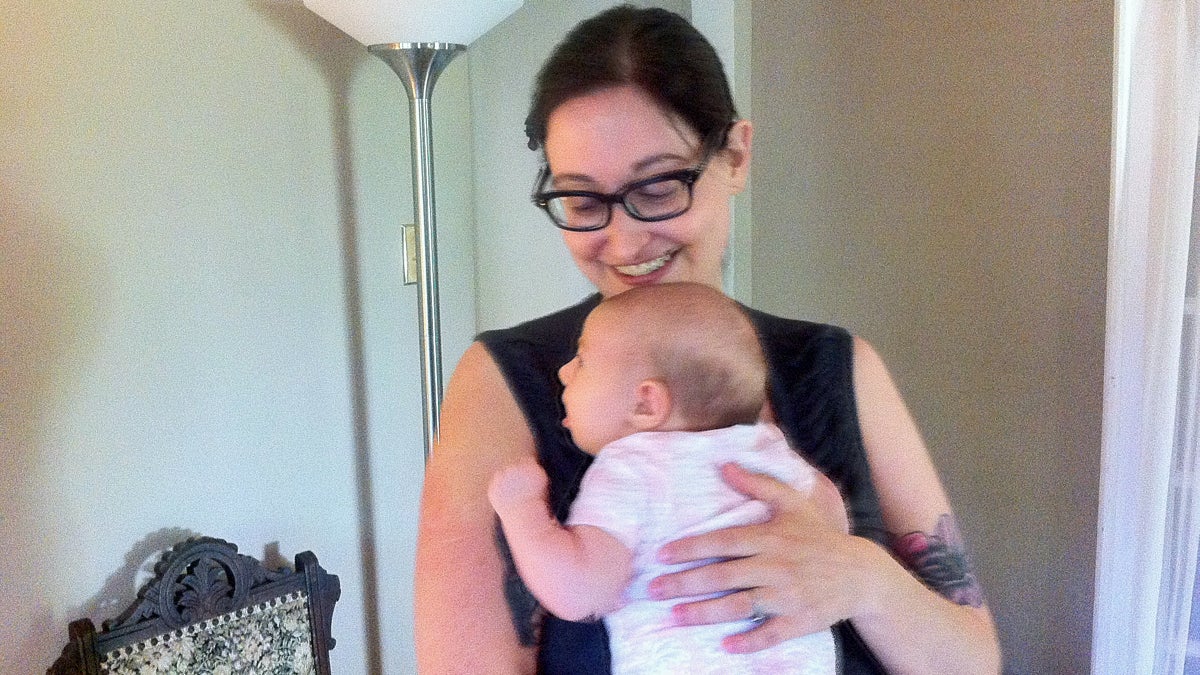Medical facilities weigh including mental health records in digital patient files

Erica Goldblatt Hyatt holds her newborn daughter. (Maiken Scott/WHYY)
As doctors’ offices and hospital systems continue to move from paper to digital medical records – many are struggling with the difficult question of whether to integrate mental and physical health records.
When the Philadelphia VA, now called Corporal Michael J. Crescenz VA Medical Center, went digital with its health records years ago, it decided to go all in. Lab results, blood tests, therapy sessions, cardiology — it’s all right there for all of the different physicians to see.
Psychiatrist David Oslin, chief of behavioral health at the Philadelphia facility, said that while there are some concerns about privacy, the inclusive approach means better care for veterans.
“It’s really important that health care be delivered by a community of providers, right? So a primary care doctor would not be making a decision about medications not knowing what medications I’m prescribing,” he said.
Oslin often uses the digital health records in his therapy sessions to gauge a veteran’s overall health. “If I’m treating somebody for depression, and they are not managing their diabetes, we know that these things interplay.”
Other health systems are more cautious about including mental health records into patients’ electronic files.
“We’re just beginning a number of the discussions on how to find the right balance between privacy and access to information for some of our mental health patients,” said Julie Massey, chief medical information officer at Einstein Healthcare Network
Some providers say if doctors see their patients have a mental health diagnosis, they will make assumptions about them, or treat them differently.
Psychologist Erica Goldblatt Hyatt says having access to full records is helpful for therapy, but as someone with a diagnosis of OCD, she is not as thrilled with the idea. “Part of the therapeutic relationship is allowing the patient to tell their story of illness from their own words,” she said.
Proponents of record integration say it would push mental health care out of its silo, making it fully part of patient care.
WHYY is your source for fact-based, in-depth journalism and information. As a nonprofit organization, we rely on financial support from readers like you. Please give today.


